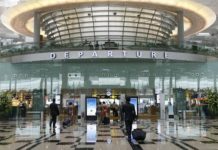Hopes of true progress to improve the rights of migrant workers building Qatar’s World Cup facilities are fading fast, said Amnesty International in a new briefing published yesterday. It is more than a year since Qatar’s government promised limited reforms to improve migrant labour rights, but Amnesty said that only limited progress has been achieved in five of nine areas. The authorities have failed to make any improvements in the other four according to a ‘scorecard’ briefing, Promising little, delivering less: Qatar and migrant labour abuse ahead of the 2022 Football World Cup.
“Qatar is failing migrant workers. Last year the government made promises to improve migrant labour rights in Qatar, but in practice, there have been no significant advances in the protection of rights,” said Mustafa Qadri, Gulf migrant rights researcher at Amnesty International.
Over the last 12 months, little has changed in law, policy and practice for the more than 1.5 million migrant workers in Qatar who remain at the mercy of their sponsors and employers, said Amnesty. On the crucial issues of the exit permit, the restriction on changing employers in Qatar’s kafala system, protection of domestic workers and the freedom to form or join trade union – there has been no progress whatsoever, it found.
“The lack of a clear roadmap of targets and benchmarks for reform leaves serious doubts about Qatar’s commitment to tackling migrant labour abuse,” said Qadri. “Without prompt action, the pledges Qatar made last year are at serious risk of being dismissed as a mere public relations stunt to ensure the Gulf state can cling on to the 2022 World Cup.”
Qadri added: “FIFA has spent much time, money and political capital investigating alleged corruption in the Russia and Qatar World Cup bids, and agonising over the scheduling of the tournament. But the organisation has yet to demonstrate any real commitment to ensuring Qatar 2022 is not built on a foundation of exploitation and abuse.
“FIFA must work closely with the government, the Qatar 2022 Supreme Committee – the body responsible for organising the Qatar World Cup – major corporate partners and others responsible for delivering the tournament to prevent abuses linked to the staging of the World Cup.”
FIFA is set to elect its new president next week, on 29 May.
The most significant reform proposed by the government last year – the introduction of an electronic wage system to change the way migrants’ salaries are paid – is still in the process of being implemented, found Amnesty. Many migrants interviewed by Amnesty International in recent months still complained of late or non-payment of wages.
Qatar has also failed to meet its target to have 300 labour inspectors in place by the end of 2014, said Amnesty. There has been only limited progress on measures to improve safety on construction sites, regulate exploitative recruitment agencies and improve access to justice for victims of labour exploitation.



































